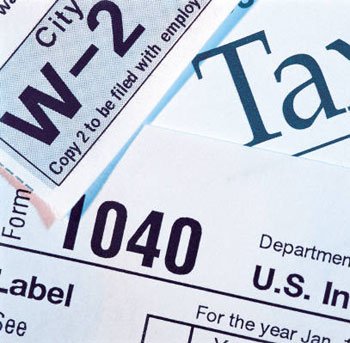Tax Tips for College Students and The Recently Graduated
For a student out on his or her own for the first time, anything to do with taxes is incredibly confusing. Should you even file a 2012 tax return? What about college credits? And, once you’ve finally graduated, it doesn’t necessarily become any easier. Although you’d rather be worrying about midterms and beer pong tourneys than researching tax software, here are some tax tips to help you come tax time.

File a Tax Return
You don’t necessarily have to file a tax return unless you earned $5,000 or more from a job. However, if you had ANY taxes taken out of your paycheck, it may be in your best interest to file. Typically, most students will get most or all of their income taxes back when they file, so if you want some extra spending money, it could be in your best interest to file. Plus, you may qualify for certain education credits if you file. Here are instructions on: How to File Your Taxes Online.
Make Use of Tax Credits
If you’re paying for your college tuition instead of your parents and are not listed as a dependent on anyone’s taxes, you are eligible for several tax credits, which allow you to subtract the amount of the credit from your income before your taxes are calculated.
Such tax credits include:
- Hope Scholarship Credit, which gives you a tax credit for up to $2,500. This credit can be taken for up to four years for 2012 and 2013 taxes, but will only be applicable for the first two years of college after that.
- Lifetime Learning Tax Credit, which is available for all years of post secondary education. You can claim up to a $2,000 tax credit for tuition and fees.
- Tuition and fees deduction, which allows you to take as much as a $4,000 deduction from the cost of tuition and fees. Personal living expenses are not deductible.
Figure Out If Your Parents Are Claiming You As A Deductible
 If your parents pay more than half of your expenses, they can claim you as a dependent. There are certainly some perks to being an independent on your taxes, but there are some definite drawbacks too. You may qualify for more financial aid and tax credits if you’re on your own, but if you don’t make that much money, those tax credits might not help you out much. Plus, if you’re an independent, you might get kicked off of your parents’ health insurance.
If your parents pay more than half of your expenses, they can claim you as a dependent. There are certainly some perks to being an independent on your taxes, but there are some definite drawbacks too. You may qualify for more financial aid and tax credits if you’re on your own, but if you don’t make that much money, those tax credits might not help you out much. Plus, if you’re an independent, you might get kicked off of your parents’ health insurance.
Use the Right Form
 If you are filing as an independent, use the 1040EZ form. However, if your parents are claiming you as a dependent, you’ll need to use the standard 1040 tax form. If you both use the 1040EZ form and your parents claim you as a dependent, then you could both get into trouble with the IRS.
If you are filing as an independent, use the 1040EZ form. However, if your parents are claiming you as a dependent, you’ll need to use the standard 1040 tax form. If you both use the 1040EZ form and your parents claim you as a dependent, then you could both get into trouble with the IRS.
Deduct Your Student Loan Interest
Once you graduate, you’ll have to start paying back your student loans. If your income is less than $70,000, you qualify for the Student Loan Interest Deduction once you start repaying your loans.You can claim up to a $2,500 tax deduction for interest paid on a student loan. If you pay more than $600 on a student loan, then your lending institution will send you a Form 1098-E with the amount you’ve paid through the year.Filing your tax returns is easy with online tax services. They should help you with your deductions and answer any questions you have. Check out a detailed tax software comparison at Tax-Compare.com.

